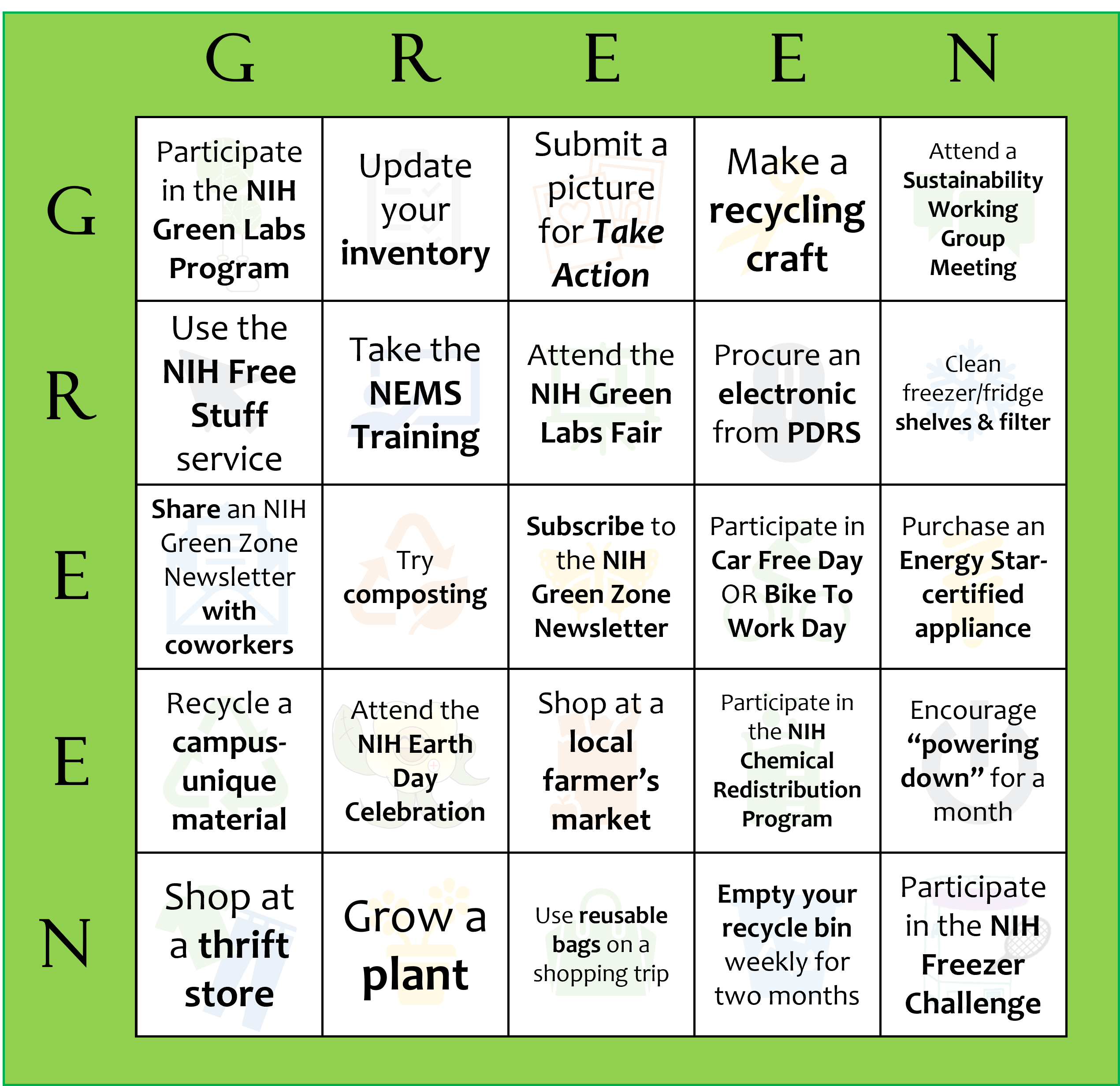
SUBSCRIBE PREVIOUS ISSUES
Spotlight
NIH Freezer Challenge with Jaroslav Sebek
Jaroslav Sebek is the Branch Chief of the Sustainability Branch within the Division of Environmental Protection. For the past five years, he has been leading the charge to market and organize the NIH Freezer Challenge, compiling the data and results to submit to the International Freezer Challenge. His continued support has helped him become quite involved in proper freezer management practices as a result.
 “Freezer management is really important at the NIH because we have a lot of energy intensive freezers,” he says, “the total energy consumption and resulting emissions are significant.”
“Freezer management is really important at the NIH because we have a lot of energy intensive freezers,” he says, “the total energy consumption and resulting emissions are significant.”
Conventional ULT freezers use around 20 kWh of electricity daily, which is the same as an average U.S. household.1 With approximately 3500 ULT freezers in service, the NIH is running the equivalent of a small city with its cold storage systems alone. The most effective ways to decrease this load are by using Energy Star models and practicing proper freezer management.
“The NIH does a good job of making sure that our freezers are functional to protect the samples, whether that's through repair or replacement,” he rubs his chin, “we don't do a good job of preventing failures in the first place.”
Jaroslav encourages the idea of more labs using ‘preventative maintenance’, that is, taking actions to keep the freezer regularly cleaned and maintained. Simple steps such as scraping ice from the door and gasket or vacuuming dust off of the filters can help the freezer more easily maintain temperature. Like an oil change for a car, regular preventative maintenances work to improve the efficiency and, as a result, the reliability of the freezer. It should also be noted that preventative maintenance is required twice per year on all ULT and lab grade freezers at the NIH, as described in Manual Chapter 26101-16.
“The Freezer Challenge addresses the weaknesses by encouraging the preventative maintenance measures and defrosting that will allow us to be more reliable,” Jaroslav explains, “I think that every lab can benefit from the Freezer Challenge.”
While the NIH has experienced various, recent victories in the International Freezer Challenge, including winning the challenge as a government organization in 2020, 2021 and 2023, Jaroslav still thinks there is room for growth. As of 2023, a total of 65 labs participated in the challenge, a significant step above the 9 labs that participated in 2019. However, even the 2023 participants only amount to around 1.5% of the total labs at the NIH, according to metrics from the Division of Occupational Health and Safety.
With the 2024 iteration of this challenge starting in January (open now!) and ending in May, Jaroslav hopes that participation in this year’s event will greatly surpass previous years.
“Everyone can participate and how you participate is entirely up to your lab. Check out the NIH Freezer Challenge page and spread the word. Help us increase our participation and improve your own freezer reliability, reduce the NIH's overall energy consumption and emissions.”
For the full transcript, click here.
Featured Article

|
New Years GREEN Bingo
Welcome to 2024! The beginning of a new year means new challenges, adventures, and achievements. Why not also commit yourself to new environmental sustainability goals as well? We have a fun game, the GREEN Bingo Board, that could keep you motivated throughout the year.
LEARN MORE
|
Take Action

|
A Review of Take Action Articles from 2023
Last year was an eventful one for sustainable actions. From gardening to biking, the year was filled with opportunities for readers to act more in our planet’s interest. As we begin 2024, let's review the actions taken last year. We hope this will inspire you to Take Action and see results in 2024.
LEARN MORE |
NEMS Training
Did you know? Bingo originated from the Italian lottery, II Gioco del Lotto d'Italia. Complete a tile on the GREEN Bingo Board today by taking the NEMS Training! The NEMS Training consists of a short (20 minute) NIH environmental awareness training video.
The NIH Green Zone Newsletter is a publication intended to inform NIH staff about the Division of Environmental Protection and NIH Green Teams projects and initiatives. The text contained in this newsletter is not copyrighted and can be reprinted without permission. If you use portions of this newsletter in your own publication, we ask that you please credit the source. We welcome your comments and suggestions. Thank you.
|
|---|
|
Division of Environmental Protection | Office of Research Facilities | Office of Management
National Institutes of Health | U.S. Department of Health and Human Services
|